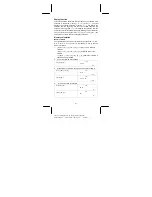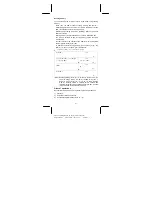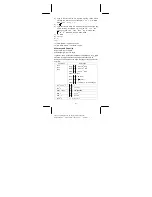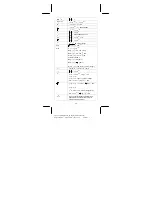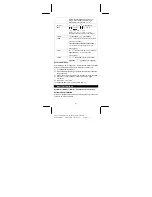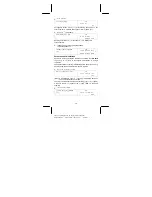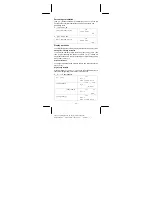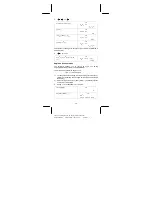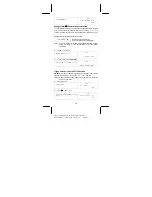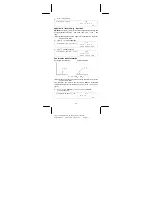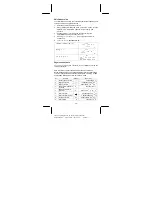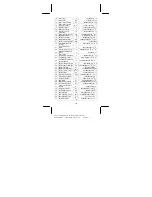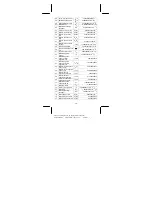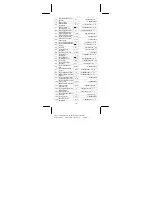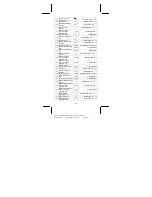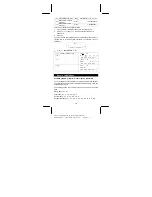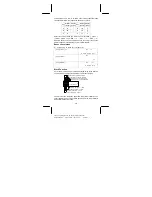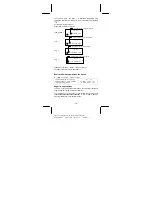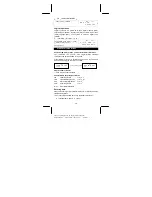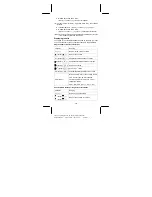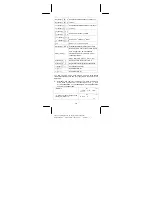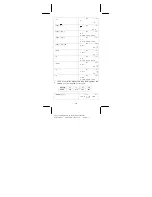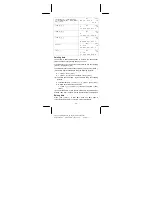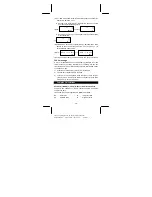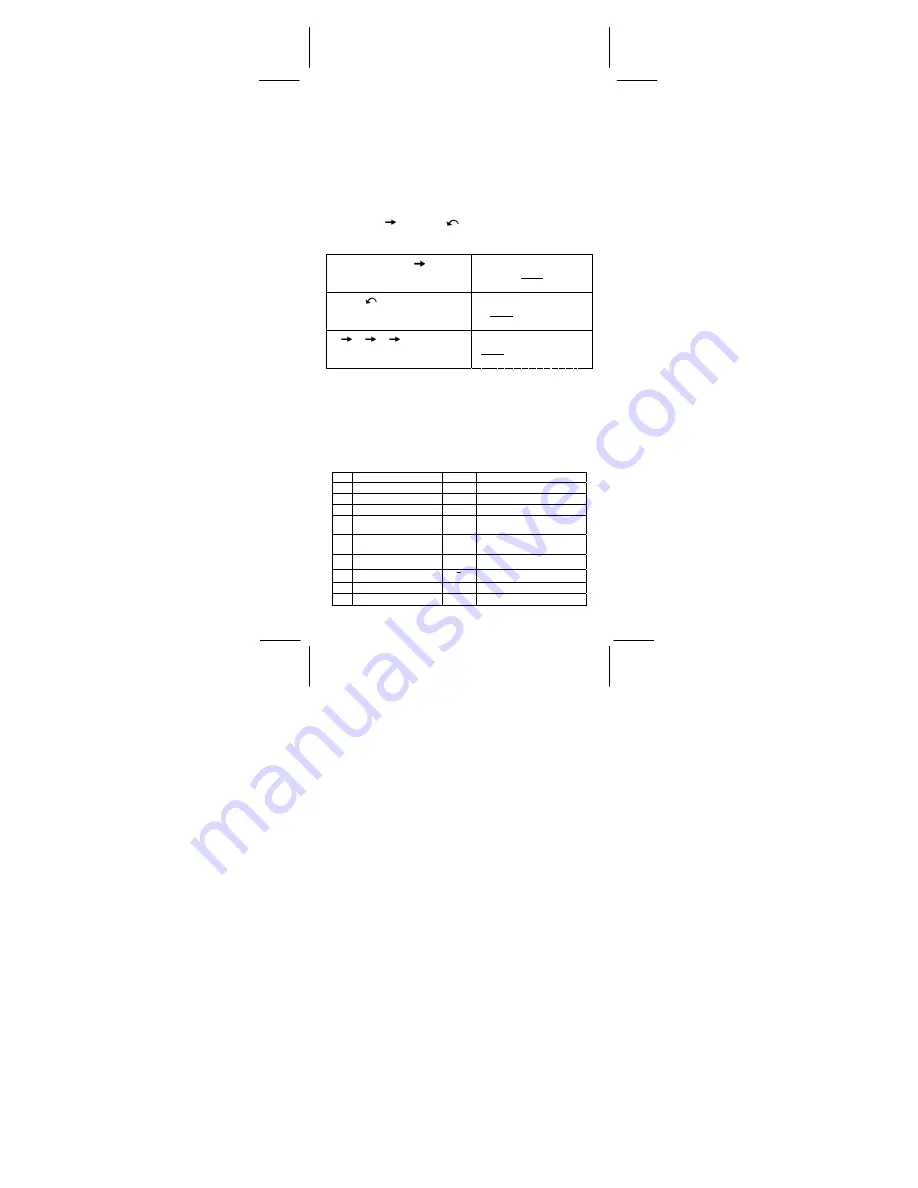
File name : CBM_SR-281N_IB_English_black_v09330.doc
Date: 2009/3/30 Trimmed Size : 140 x 75 mm SCALE 1 : 1
-E19-
Unit Conversion
The calculator has a built-in unit conversion feature that enables you to
convert numbers among different units.
1. Enter the number you want to convert.
2. Press [ CONV ] to display the menu. There are 7 menus, covering
distance, area, temperature, capacity, weight, energy, and
pressure.
3. Use the [ CONV ] to scroll through the list of units until a
appropriate units menu is shown, then [=].
4. Pressing
[ ] or [ 2nd ] [
] can convert the number to
another unit.
¾
1 y d
2
= 9 f t
2
= 0.00000083612 km
2
DEG
f t
2
y d
2
m
2
1 [ CONV ] [ CONV ] [
] [=]
1
.
DEG
f t
2
y d
2
m
2
[ 2nd ] [
]
9
.
DEG
k m
2
h e c t a r e s
[
] [
] [
]
0
.
0 0 0 0 0 0 8 3 6 1 2
Physics constants
You can use 136 physics constants in your calculations. With the
following constants :
Data is referred to Peter J.Mohr and Barry N.Taylor, CODATA
Recommended Values of the Fundamental Physical Constants:1998,
Journal of Physical and Chemical Reference Data,Vol.28, No.6,1999
and Reviews of Modern Physics,Vol.72, No.2, 2000.
No. Quantity Symbol
Value,
Unit
1.
Speed of light in vacuum
c
299792458 m s
–1
2. Magnetic
constant
μ
0
1.2566370614 x10
–6
N A
–2
3. Electric
constant
ε
0
8.854187817 x 10
–12
F m
–1
4.
Characteristic impedance
of vacuum
Z
0
376.730313461
Ω
5.
Newtonian constant of
gravitation
G 6.67310
x10
–11
m
3
kg
–1
s
–2
6. Planck
constant
h
6.6260687652 x10
–34
J s
7.
Planck constant over 2 pi
h
1.05457159682 x10
–34
J s
8. Avogadro
constant
N
A
6.0221419947 x10
23
mol
–1
9. Planck
length
lp
1.616012 x10
–35
m

